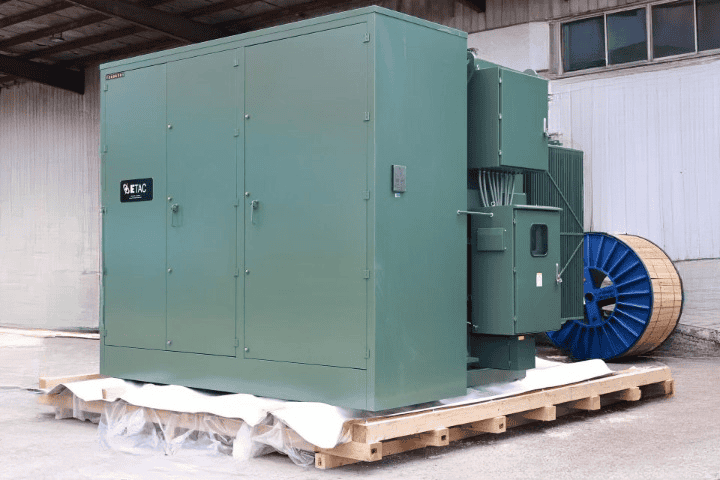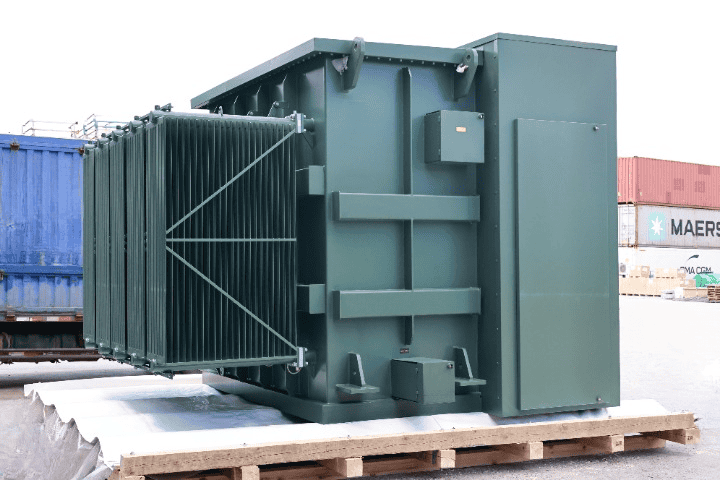Discover ETAC’s Dead Front HV Transformer, designed for safety, compact setup, and minimal infrastructure.
August 6th, 2025
Dead Front High Voltage Substation Transformers (DFST) are a compact, fully enclosed unit designed for medium to high-capacity distribution in space-constrained or publicly accessible areas. This advanced transformer, engineered to meet modern installation and safety requirements, combines the accessibility of a Padmount unit with the capacity and performance of a Substation Transformer.
This article outlines the key advantages of this configuration including space optimization, safety, installation efficiency, visual integration, and control customization.


The Dead Front design eliminates the need for perimeter fencing, head buswork, and lightning skywires. It also reduces civil infrastructure requirements. Its compact, pad-mounted design allows flexible installation a smaller physical footprint, making it suitable for space-constrained urban or industrial environments.
The fully enclosed, tamper-proof cabinet with separable cable terminations eliminates exposed high-voltage connections. This configuration prevents the risk of accidental contact and improves both public and operator safety.
By removing fencing and complex civil works from the installation process, the transformer shortens deployment timelines by several months compared to conventional substation setups. This speed supports faster response to infrastructure demands.
The enclosed design improves aesthetic integration into the environment by reducing the visual impact of high-voltage equipment. This benefit is particularly valuable in urban or high-visibility locations where minimizing industrial impact is important.
Users can configure monitoring, alarm, and control systems to align the transformer with specific utility, project, or site requirements.
Supports 300 kVA to 10 MVA with Δ/Y primary voltages from 4.16 to 34.5 kV and secondary Δ/Y configurations.
Supports 3,000 kVA to 20 MVA with similar voltage ratings optimized for pad-mounted applications.
Requires reinforced steel tank, foundations, and site preparation.
Simplified civil infrastructure due to compact, padmount design.
Larger footprint with fenced enclosures connected with a complex ground grid and access clearance.
Compact footprint, no perimeter fencing needed, suitable for space-constrained sites.
Exposes high-voltage components with conventional overhead cable connections.
Fully enclosed dead-front enclosure with underground cable connections.
Higher operational maintenance due to exposed components and larger site.
Reduces maintenance needs and energy loss, improving long-term efficiency and lowering operational costs.
ETAC’s Dead Front High Voltage Substation Transformer (DFST) represents a modern development in medium and high-voltage transformer design. By combining the core benefits of Padmount and Substation transformer configurations, it offers a compact, fully enclosed tamper-proof solution for installations where safety, space, and deployment speed are critical.
This model is particularly well-suited for urban or restricted-access environments, and it supports compliance with CSA standards including C88:16 and C802.3-15.